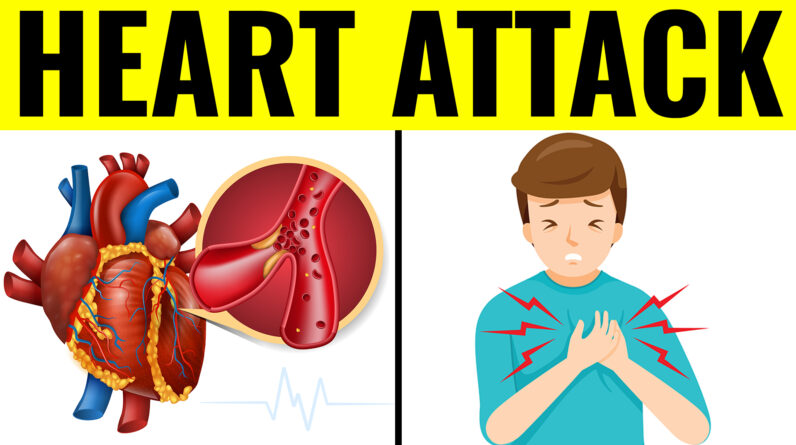
Magnesium is one of the most important nutrients that the human body needs. Some people have even dubbed it the do-it-all nutrient. For one, magnesium is a component of our bones and teeth, making it important for the retention of bone and teeth structure. Magnesium is also necessary for other functions including nerve function, muscle function, DNA replication, enzymatic reactions, and energy production. So yes, magnesium is very important.
Unfortunately, though, magnesium deficiency, also called hypomagnesemia, is not talked about often enough. Granted, studies have shown that only about 2% of Americans have said that they experience or have experienced magnesium deficiency. But considering how important this nutrient is to the human body and the fact that most Americans are not meeting their recommended intake, we should be talking about this deficiency a lot more.
Which is why this article now exists. Now, I should mention that magnesium deficiency is generally underdiagnosed because its signs typically don’t become obvious until one’s magnesium levels are scaringly low. That said, let’s look at what these symptoms are:
#1 – Headaches and Migraines
Low magnesium levels could be the cause of some headaches and even migraines. And this is because, as some research has shown, magnesium might have some positive effects on the neurotransmitters that control or even block pain. With magnesium levels low, the neurotransmitters might not perform their function of controlling or blocking pain well enough, leading to headaches and migraines.
#2 – Twitches
Another sign of magnesium deficiency is twitches. Tremors, and cramps in the muscles. This could be because low magnesium results in a greater flow of calcium into the nerve cells. This then overstimulates the muscle nerves, causing the twitches or tremors. Worst case scenarios, this could lead to seizures and/or convulsions.
Unfortunately, simply popping some magnesium supplements will not completely get rid of these symptoms, especially in adults. So, if you are experiencing persistent muscle cramps and twitches, you should consult your doctor.
#3 – Fatigue and Muscle Weakness
Fatigue and muscle weakness could also be signs of magnesium deficiency. Of course being tired after a particularly stressful activity or day is very normal, and getting some rest should get you back in shape.
But if you are always tired and rarely ever feel better after getting some rest, it could be because you are not getting enough magnesium, especially if your fatigue is accompanied by muscle weakness. And this could be because of low potassium levels in the muscle cells, which has been linked to magnesium deficiency. Also, magnesium is basically an electrolyte that is necessary for muscle function, so when it is in short supply, your muscles will cramp and twitch.
#4 – Restless Legs Syndrome
Another muscle-related condition that could result from low magnesium levels is Restless Legs Syndrome (RLS) or Nighttime Muscle Spasms. This condition is characterized by an uncontrollable urge to move the legs at rest. Magnesium is supposed to help relax the muscles, so when it is not in sufficient supply, said muscles would find it difficult to stay still.
#5 – Osteoporosis
Osteoporosis, a disorder characterized by weak bones, is another sign of magnesium deficiency. Granted, there are other risk factors for osteoporosis, including aging and a lack of exercise, however magnesium deficiency as a risk factor should not be overlooked.
The amount of magnesium in the blood directly affects the amount of calcium in the blood. So, if magnesium is in short supply, calcium would also be in short supply, and we all know how important calcium is to the building of bones and retention of bone structure.
#6 – Dip in Mental Health
Aside from bones and muscles, magnesium deficiency could also affect one’s mental health. Apathy, a condition characterized by mental dumbness, is a big one when it comes to magnesium deficiency. Magnesium deficiency could also put one at greater risk of depression, and worst case scenarios, delirium and even coma.
#7 – High Blood Pressure
Another serious sign of magnesium deficiency is high blood pressure. There is still a lot of research to be conducted in this area, but preliminary results show that low magnesium levels could raise one’s blood pressure significantly, promoting high blood pressure and putting one at risk of a range of heart diseases.
These results also show that taking magnesium supplements could help lower blood pressure, especially for adults who have high blood pressure. However, considering that high blood pressure is symptomatic of a number of other conditions, it is important that you speak with your doctor if your blood pressure is unusually high. Taking magnesium supplements doesn’t hurt, though.
#8 – Asthma
Asthma is another condition that has been linked to magnesium deficiency. Now, this deficiency doesn’t exactly cause asthma, but people with severe asthma have been found to have low levels of the nutrient.
That said, some research has shown that a lack of magnesium could cause calcium to build up in the muscles found in the lungs. And you can see how this could cause a constriction of the airways. More research is still being conducted to really determine the role of magnesium in the development of asthma.
What to do about magnesium deficiency
Now that we’ve got the symptoms covered, let’s talk about what you can do about them. Basically, you need to start making sure that you get your recommended daily intake of magnesium. For an adult male, you are looking at between 400 and 420 mg. And for an adult female, you are looking at between 310 and 320 mg; up to 360 mg if you are between the ages of 14 and 18.
Food is your best source of magnesium, like basically every other nutrient. Some of the best sources of magnesium are peanuts, almonds, dark chocolate, coffee, sunflower seeds, oats, cashews, and popcorn.
But, of course, if, for whatever reason, you can’t get your daily recommended intake from food or your body loses the magnesium that you consume, there are supplements that you could take. However, instead of popping into your local drugstore to pick anything off the shelf, consider speaking with your doctor first.
It is possible to overdose on magnesium supplements with symptoms including diarrhea, cramping, and nausea. So, to prevent that, consult with your doctor, and together, you both should be able to come up with a plan for increasing your magnesium intake that works for you.







